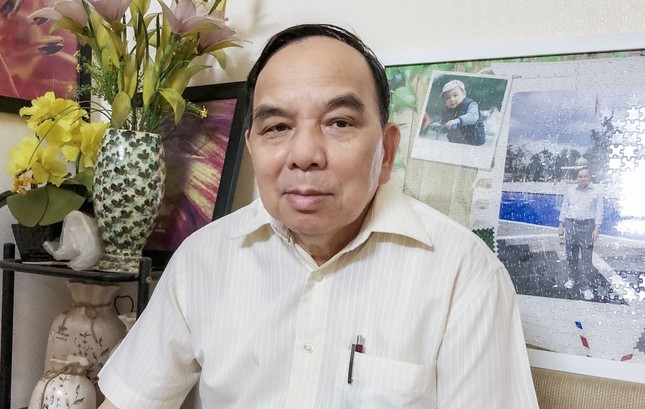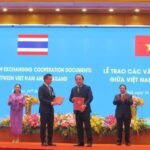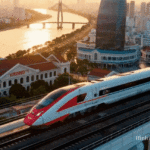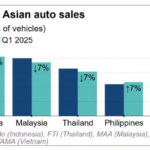Leveraging Private Capital for Development
In an interview with
Tien Phong
newspaper, GS, TS. Bui Xuan Phong, former Chairman of the Vietnam Railway Economics and Transport Association, shared insights on the proposed high-speed North-South railway project. He highlighted the growing interest from private enterprises in contributing to this endeavor, aligned with Resolution 68 on private economic development by the Politburo.
Notably, VinSpeed has recently proposed to invest directly in the project, offering an alternative to traditional public investment or public-private partnership models. Even more impressively, they aim to complete the project in just five years, half the time of the initial plan.
GS, TS. Phong acknowledged that numerous Vietnamese contractors are eager to participate in the construction of this high-speed railway. However, he emphasized the complexities of railway technology, encompassing not only engineering and mechanics but also electrical, transportation, and economic aspects. The North-South high-speed railway project presents even more extraordinary demands.
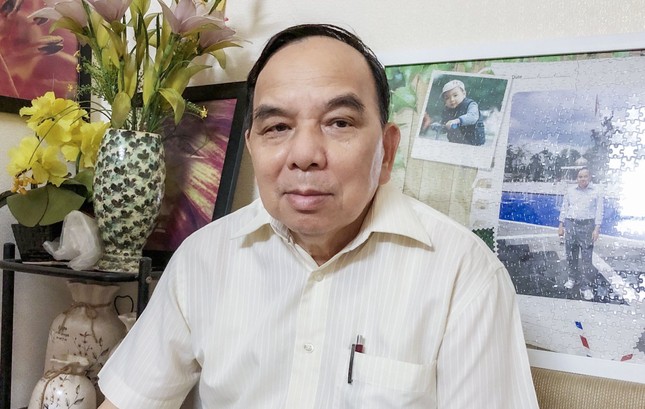
GS, TS. Bui Xuan Phong, former Chairman of the Vietnam Railway Economics and Transport Association. Source: VNHN.
“The challenge for Vietnamese enterprises aspiring to engage in this mega project lies in acquiring or transferring technology from developed countries with a strong high-speed railway sector,” expressed GS, TS. Phong. He added that learning from or hiring highly skilled foreign experts is also essential.
From a different perspective, transport expert Nguyen Xuan Thuy appraised the capabilities of Vietnamese private enterprises, highlighting their nimble organizational structures, decisiveness, and efficient budget allocation. Mr. Thuy expressed confidence in the potential for private enterprises to play a more significant role in the North-South high-speed railway project. However, he acknowledged the lack of experience among Vietnamese private enterprises in constructing high-speed railways, leading to the necessity of engaging foreign experts and architects who may not possess an in-depth understanding of Vietnam’s unique railway characteristics.
TS. Nguyen Xuan Thuy emphasized the importance of collaboration between the state and private enterprises in undertaking the North-South high-speed railway project.
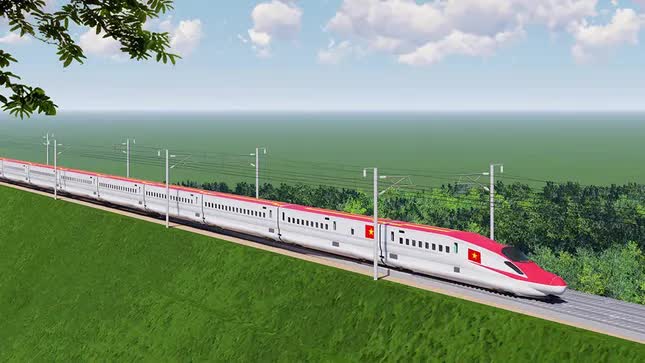
Collaboration between the state and private enterprises is key to the success of the North-South high-speed railway project. Source: Chinhphu.vn
According to Mr. Thuy, Vietnam’s railway sector has over a century of experience, offering valuable consulting and directional support to enterprises. Conversely, he suggested mechanisms to empower private enterprises to act independently in specific project phases.
“It’s time to harness the potential of private sector capital, dynamism, decisiveness, and stringent management in executing the North-South high-speed railway project,” asserted TS. Nguyen Xuan Thuy.
Opportunities for Localization
PGS.TS Nguyen Hong Thai, Vice Chairman of the Vietnam Railway Transport Association, shared with
Tien Phong
that Vietnam considers the North-South high-speed railway project as a pivotal pillar in its industrialization and modernization agenda during this era of national advancement. The project is envisioned to rely primarily on public investment and minimize foreign dependence, presenting a substantial opportunity for Vietnamese enterprises to partake in the construction market valued at approximately $33.5 billion and to venture into the highly prospective railway industry.
However, undertaking a project of this magnitude comes with significant challenges in technology, human resources, finance, and legal aspects, posing complex questions for policymakers and the Vietnamese business community.
According to PGS, TS. Nguyen Hong Thai, the most formidable challenge for Vietnam in executing this project lies in multi-sector coordination. The Ministry of Construction needs to address a series of issues spanning various domains, including national defense and security, finance, investment planning, science and technology, research and training, integrated spatial planning for stations, regional planning, and foreign investment.
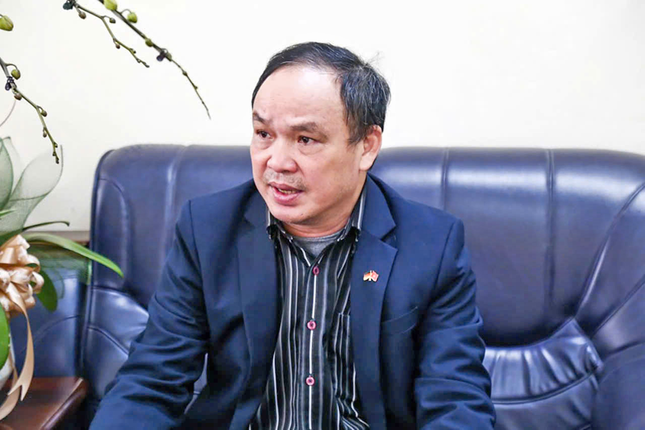
PGS, TS. Nguyen Hong Thai, Vice Chairman of the Vietnam Railway Transport Association. Source: NVCC.
Vice Chairman Nguyen Hong Thai pointed out that Vietnamese enterprises aspiring to engage in the project’s construction must simultaneously tackle multiple challenges. For instance, they must meet world-class technical and technological standards, and the targeted speed of 350 km/h necessitates stringent design, construction, and quality control measures. Elements such as bridge girder deflection, dynamic interaction between trains and tunnels, and signaling systems must attain absolute precision…
However, in reality, Vietnamese enterprises currently lack a sufficient pool of high-caliber railway engineers to undertake this highly complex project, which demands absolute precision in technology and techniques and has no precedents in Vietnam.
“The North-South high-speed railway project not only presents an opportunity for Vietnam to significantly enhance the autonomy of its transportation infrastructure but also serves as a significant test of the capabilities and unity of domestic enterprises,” asserted Mr. Thai. He emphasized that with determination from the government, support from macroeconomic policies, and the spirit of creativity and proactiveness among Vietnamese enterprises, this project offers a chance to elevate construction capabilities and foster the localization of the railway industry in Vietnam.
The North-South high-speed railway project, spanning over 1,540 km from Hanoi to Ho Chi Minh City, is designed for speeds up to 350 km/h. It is one of the most substantial public investment projects in history, with a total investment of more than $67 billion. The project is expected to commence before December 31, 2026, and be completed by 2035.
A Comprehensive Review: Securing Bank Accounts and Phone SIMs to Combat Online Scams
“In response to the escalating sophistication of cybercrime, the Prime Minister has called for a nationwide campaign to scrutinize all bank accounts and mobile phone SIM cards. This proactive measure underscores the government’s commitment to safeguarding citizens’ digital assets and personal information.”
“Big Pharma’s Greasy Palms: The 71 Billion Dong Question”
“In a shocking revelation, investigations have unveiled a corruption scandal involving the pharmaceutical industry and healthcare officials. It has been discovered that Pham Van Cach, the Chairman of Son Lam Pharmaceutical Joint Stock Company, bribed hospital and medical center directors, deputy directors, and individuals with authority, to the tune of over VND 71 billion. This was done to ensure smooth sailing in the supply of medicines and to avoid any potential hurdles.”
Vietnam and Thailand Sign a Strategic Partnership to Boost Trade
This partnership program, spanning 2026 to 2028, marks a significant milestone in the economic and trade collaboration between Vietnam and Thailand. It serves as a pivotal stepping stone for Vietnamese businesses to expand their reach into regional and global markets.
The Rise of Vietnam’s Automotive Industry: Over 118,000 Cars Sold Amidst a Booming Economy and Flourishing Domestic Consumption.
The automotive industry in Vietnam is thriving, with an impressive sales performance in the first quarter of 2025. With a total of 118,813 vehicles sold, Vietnam has outperformed the Philippines, which sold 117,074 units during the same period. This statistic showcases the promising growth and potential of the Vietnamese automotive market, indicating a positive trajectory for the industry in the coming years.

